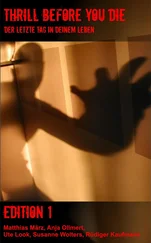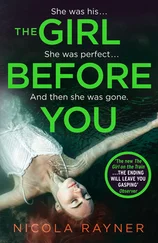Spencer was still muzzy with painkillers and dazed by an anesthesia-born hangover. Apparently he wouldn’t start hurting like hell for another couple of hours, and so the physicians had recommended that Charlotte and Willow come see him now. His eyes were open, but Charlotte had the distinct sense that he was only vaguely aware of the crowd that gathered around him in his glass-enclosed ICU cubicle. Aunt Sara and Uncle John and Grandmother were sitting somberly on the boxy radiator against the window, while she and Willow and her mom were standing like columns on the side of Uncle Spencer’s bed nearest the massive glass wall that faced the nurses’ station. Everyone, Charlotte noticed, had their hands at their sides, as if they were afraid they might brush against the metal bars that ran along the mattress like a guardrail.
She wanted to tell her father that she was sorry, but the very idea of apologizing seemed so pathetically meaningless and inadequate that so far she hadn’t said a word. She feared she was behaving like a sullen teenager-a term she had heard her seventh-grade history teacher use with great frequency during the previous school year, as if a sullen teenager were the single worst thing in the world a person could become. Still, she couldn’t bring herself to speak. She had barely been able to bring herself to inch to this corner so close-so very close-to her father’s face and all those bandages and wires and tubes.
No one, in truth, was saying a whole lot. Her mother, her breath such a powerful windstorm of mint that it almost covered up the smell of antiseptics and her father’s own sick-person dog breath, had kissed her dad gently on his damp forehead any number of times, but even she had said very little. Apparently she had talked to him a great deal when he was first beginning to surface from his chemical coma, but now she had grown quiet.
Charlotte wondered what would happen if she even tried to open her mouth and apologize, and she guessed there was a pretty good chance she would wind up weeping again. Moreover, there were so many things for which to apologize. At the top of the list, of course, was shooting her dad, even if that had been an accident. But that accident sprang from the fact that she shouldn’t have been fooling around with the rifle while her cousin was bringing the diapers up to her aunt and uncle. And so perhaps she should begin by telling Uncle John that she was sorry for taking his gun in the first place. Clearly that had been a bad idea. A very bad idea.
Likewise, she could tell her cousin that she was sorry she had ignored her when Willow had asked her to leave the gun alone.
And if she really wanted to make amends, she could apologize to everyone for stealing Gwen’s joint and smoking it and for getting herself and her younger cousin both tipsy and stoned.
It was a long list. She had really screwed up this time, no doubt about it. And while she was smart enough to know that a lot of people were going to blame Uncle John for leaving a loaded rifle in the trunk of his car, she was the one who’d smoked the dope, taken the gun, and foolishly fired it at the first thing that moved in the night.
You couldn’t fix this disaster. No way.
Nevertheless, she had already started to make vows. She would never smoke pot or drink beer or say a rude word to her parents again. She would wear whatever bathing suit Grandmother wanted. She wouldn’t steal her mother’s cosmetics, she wouldn’t complain about Grandmother’s nature hikes. She would weed without complaint whenever-and whatever-her dad desired, and she would stop trying to flirt with older boys.
She would discourage her mother from flirting, too-at least with anyone other than Dad.
She would take pride in her plastic shoes, her canvas belts, her vinyl wallet. She would not dream of her own black leather jacket.
She felt the heat from the sun through the window, despite the chill in the room from the air-conditioning. She guessed they were facing west.
Suddenly her father’s eyes turned toward her, and even his head rolled a degree in her direction.
“So,” he murmured, and he started to smile. Then, his voice the shallowest of whispers, he rasped, “Guess… Annie… had it… right.”
She tried to recall who they both knew named Annie, but could think of no one. Her mother, it was evident, hadn’t a clue who he was talking about either.
“Annie?” she asked him simply.
“Oakley,” he continued slowly. “You… know. You… can’t… get a man… with a gun.”
She stood motionless for another moment, absorbing his grin. He was referencing a show tune they had sung together for laughs when she’d been a little girl. Then she felt the long quivers deep in her nose that always preceded her tears, and before she knew it she had fallen against her mother’s chest-she would have put her head atop her father but she was afraid she would hurt him or break something-and, once again, she was sobbing.
Spencer knew the button that would propel a burst of morphine down the intravenous drip and into his blood was within inches of his left hand, and he needed only to move half an inch on his back and then stretch his fingers and press. But the very idea of that first motion-sliding over barely the width of his pinkie in his bed-filled him with dread. He feared if he did he would feel once again those excruciating spikes of pain that had filled his shut eyes with omegoid bursts of white light, caused his back and shoulders and arms to recall in all too precise detail what it felt like to be pulverized-the bone ground to powder, the muscles and tendons shredded and whisked. He spasmed at the memory, whimpered like a terrified puppy. But he knew he could use some more drugs. As it was, even lying still in the middle of the night, he was in more agony than he had ever endured in his life, and he wanted either a rush of morphine pumped into his system now or a nurse to appear in the dim light in his hospital room with one of those tiny paper cups full of meds.
Moreover, every time his shoulder sent one of those throbbing tendrils of pain through his whole body (even his head, for God’s sake: The back of his skull felt like there was a sinus infection festering there the size of a melting glacier), he would surprise himself by groaning aloud. Spencer viewed himself as many things, but a groaner had never been among them.
Occasionally, when he wasn’t focused exclusively on how much he hurt-when the pain was merely a Rorschach that elicited other memories-he would think of the lobsters he’d killed and what he presumed was the torture he’d inflicted on them. In theory, if he cleavered the creatures properly and landed the edge of the kitchen hatchet squarely on the straight line along the animal’s abdomen and carapace, in an instant the blade would slice through the body and down to the mass of brain and nerve that ran like a string along the inside of the shell, thereby rendering the lobster insensate. Of course, only rarely did he cleaver the lobsters with anything like that sort of surgical exactitude. Most of the time he was simply trying not to get gnashed by a claw that had broken free of its rubber band, and to get the damn thing into the oven so that the waiters-grown men who questioned silently (and, some days, not so silently) why a kid was in the kitchen-could get their dinners out to their diners.
And though Spencer did not view his situation now as karmic payback for the lobsters he’d cooked, there were moments (and he wasn’t sure whether these would be considered lucid moments or the kinds of increasingly bizarre reveries he had come to call painkiller moments) when he saw his suffering as a reminder (God, he would think then, wouldn’t a fucking Post-it note have sufficed?) of the pain that humans inflicted on millions of animals every day.
Читать дальше











